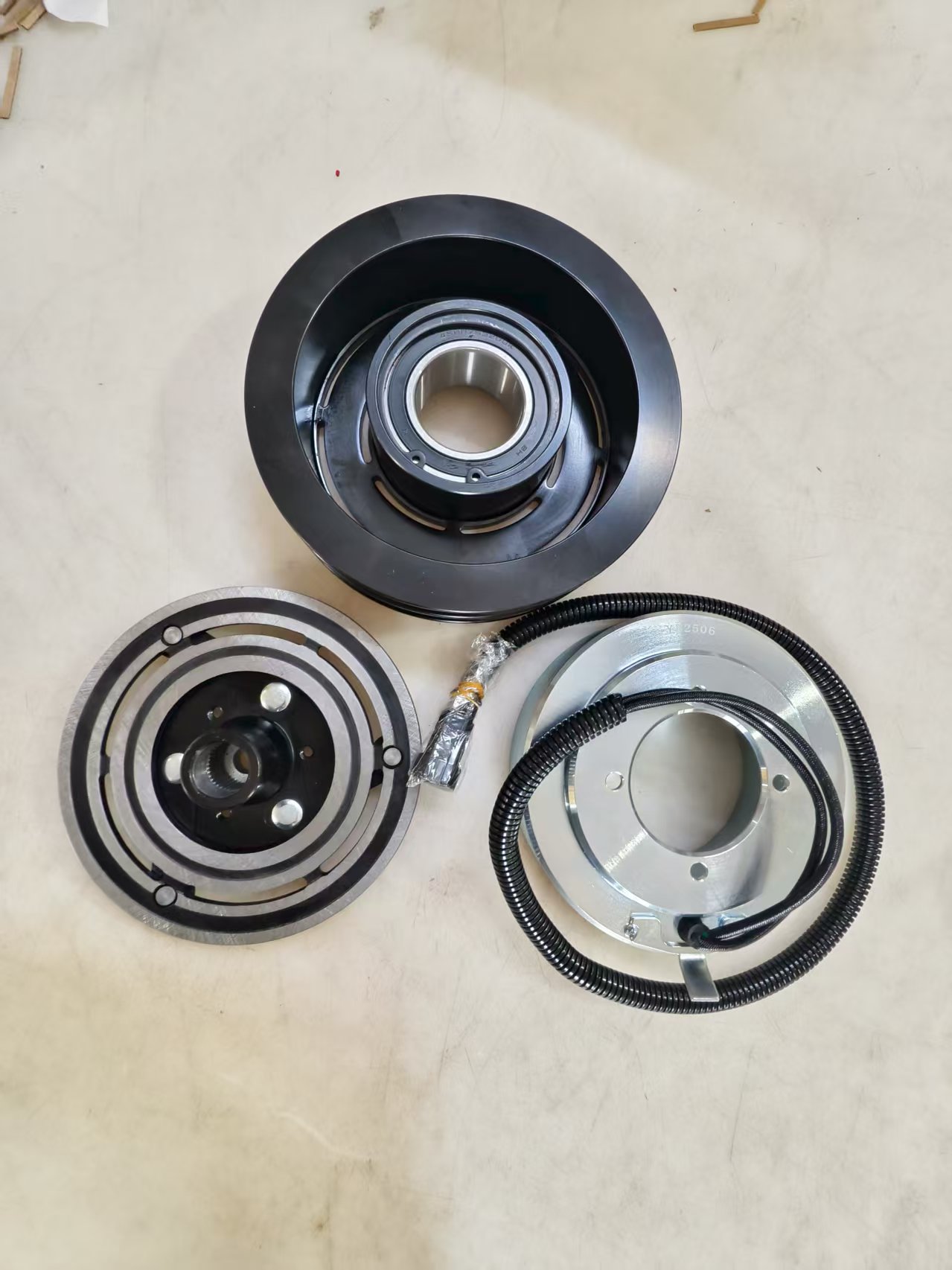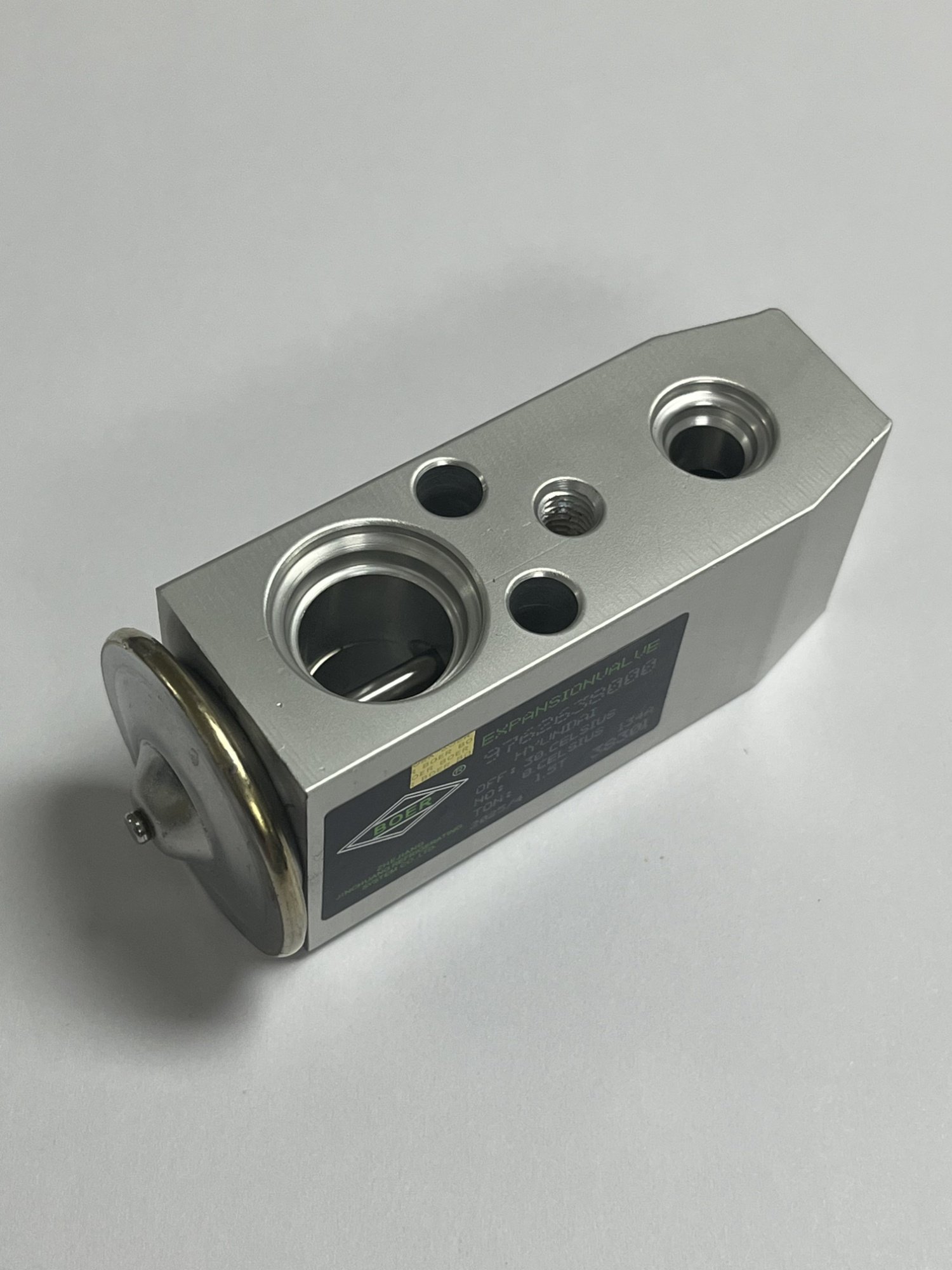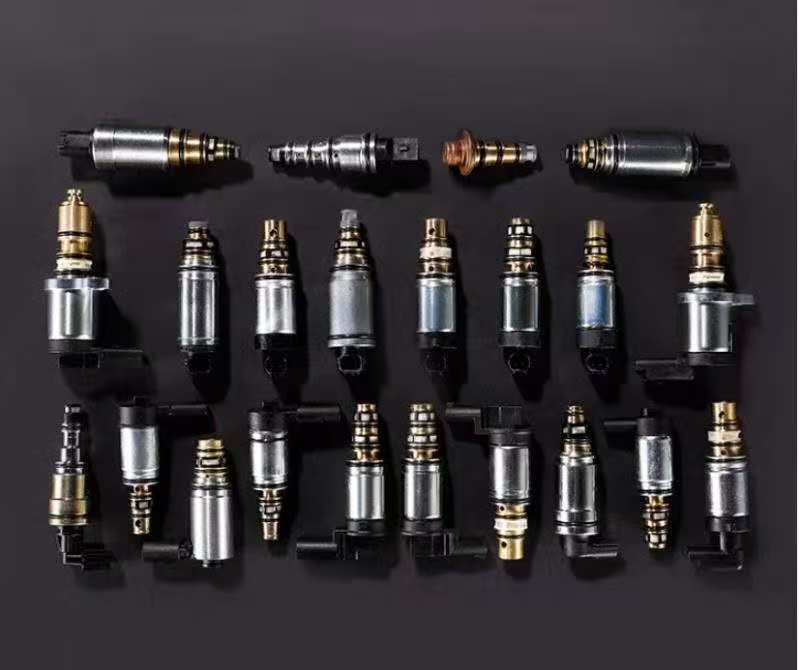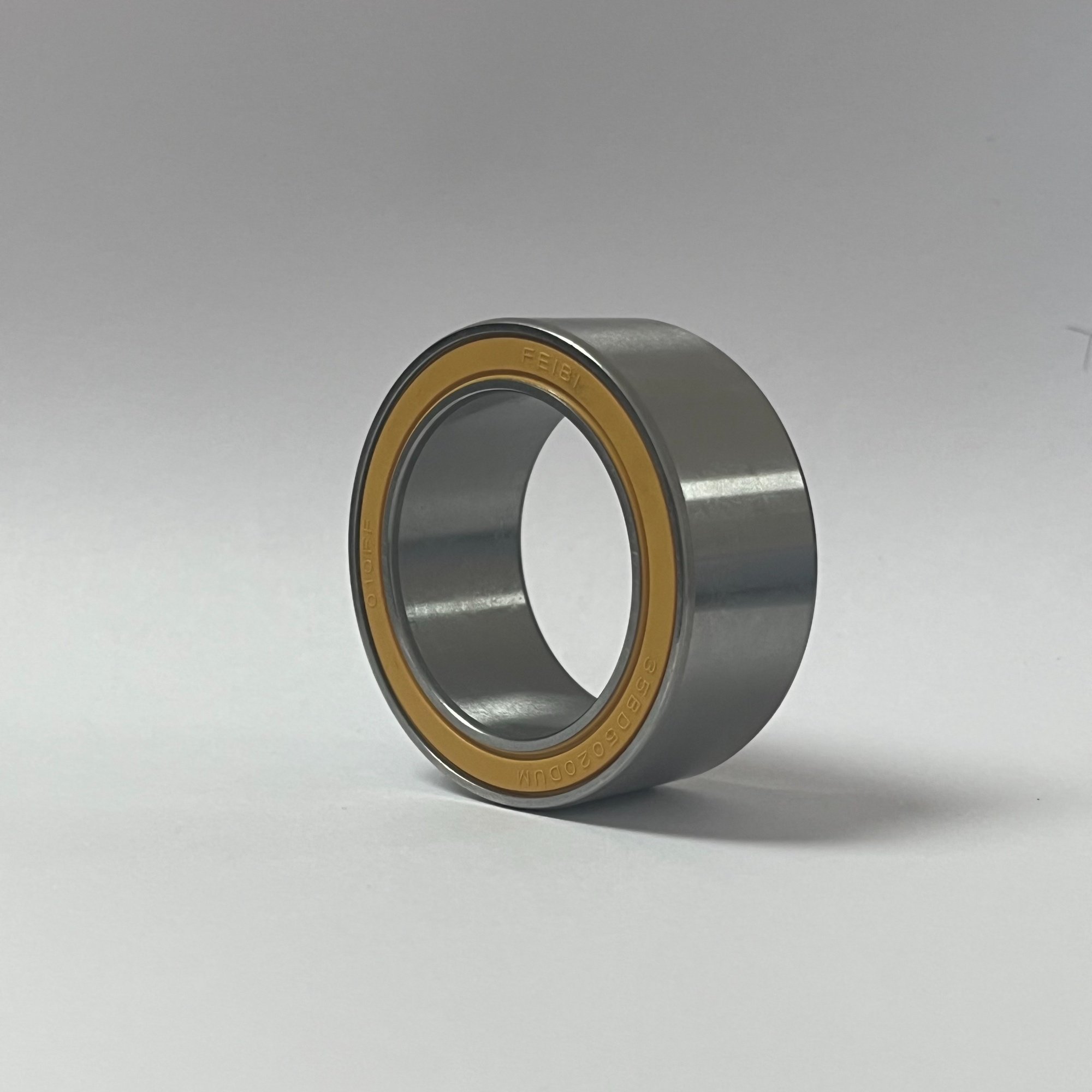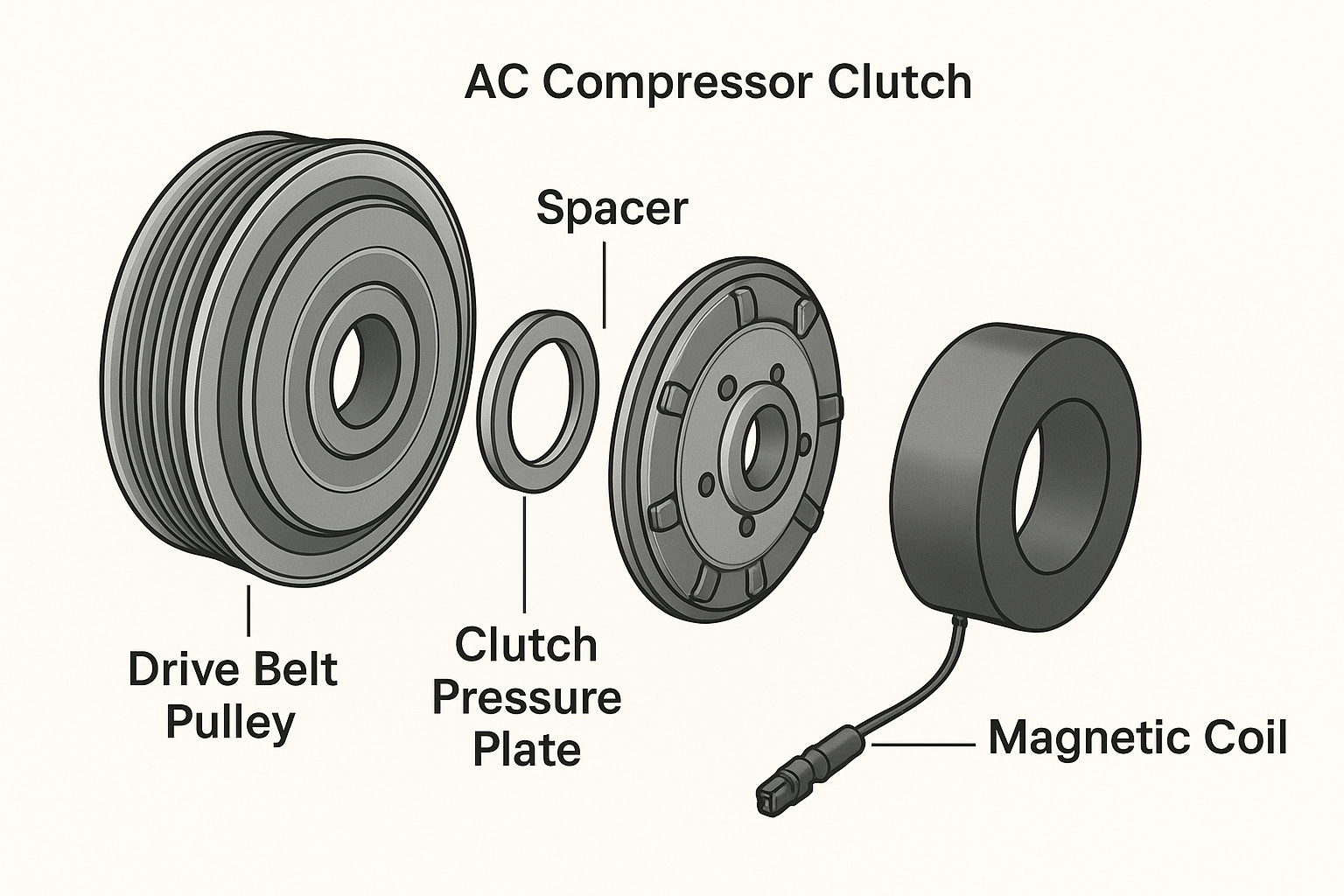What is a Car AC Compressor and Why It’s Important
The AC compressor is responsible for compressing low-pressure refrigerant gas into high-pressure, high-temperature gas, which then flows through the condenser, evaporator, and back to the compressor in a continuous cycle.
Key Functions:
-
Drives refrigerant through the AC system
-
Maintains the pressure difference necessary for cooling
-
Enables efficient heat exchange
Types of Car AC Compressors:
-
Piston Compressor – Most common, robust design
-
Rotary Compressor – Compact, quieter operation
-
Scroll Compressor – Smooth, high efficiency
-
Variable Displacement Compressor – Adjusts cooling power to save energy
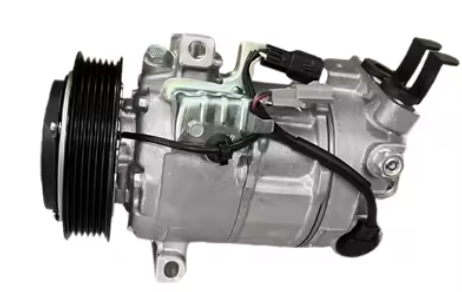
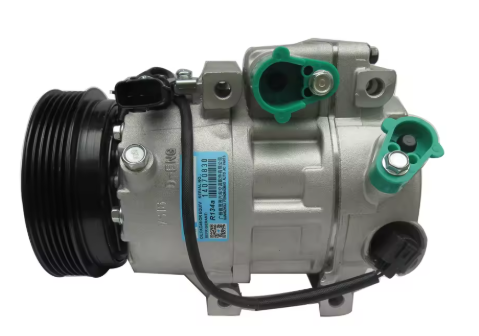
Common Signs of a Failing AC Compressor
Recognizing early symptoms can save you from costly repairs. Watch for these:
-
Insufficient Cooling or Warm Air – Often due to low refrigerant, worn compressor, or blocked condenser
-
Strange Noises – Grinding, squealing, or rattling can indicate internal wear or clutch problems
-
Compressor Clutch Not Engaging – Electrical issues, failed coil, or mechanical failure
-
Refrigerant Leaks – Oil stains or visible leaks around fittings and hoses
-
AC System Cycling Frequently – Pressure imbalance or electrical sensor issues
Causes of AC Compressor Problems
Understanding what leads to compressor failure helps in prevention:
-
Refrigerant Issues – Low, contaminated, or incorrect type
-
Lubrication Problems – Inadequate or wrong compressor oil
-
External Blockages – Dirty condenser or evaporator, restricting refrigerant flow
-
Drive Belt or Electrical Faults – Loose belt, worn clutch, faulty wiring
-
Extreme Conditions – Overheating, long-term heavy AC use
-
Poor Maintenance – Ignoring regular checks, not replacing air filters, or dirty condenser
Repair and Replacement Options
Diagnostic Checks
-
Check refrigerant pressures (high and low sides)
-
Inspect compressor clutch operation and electrical connections
-
Listen for unusual sounds during startup
-
Check for leaks using UV dye
Minor Repairs
-
Replace seals, gaskets, or O-rings
-
Tighten or replace drive belts
-
Refill refrigerant or oil
-
Clean condenser and evaporator
Compressor Replacement
If internal components like pistons, bearings, or the clutch are damaged, replacement is often the best solution:
-
Choose compatible AC compressor with proper specifications
-
Replace filter/drier to avoid contamination
-
Evacuate and recharge the system with correct refrigerant and oil
CTA: Browse our premium automotive AC compressors for reliable replacement and long-lasting performance.
AC Compressor Maintenance Tips to Extend Lifespan
-
Regularly check refrigerant and oil levels
-
Keep condenser and cooling system clean
-
Replace air filters as recommended
-
Avoid continuous heavy AC use in extreme temperatures
-
Schedule professional inspections periodically
Conclusion
The car AC compressor is vital for your vehicle’s cooling performance. Early detection of problems, proper maintenance, and timely replacement can save money and ensure comfort. Proactive care extends compressor life and keeps your air conditioning system operating efficiently.
CTA: Check out our wide range of automotive AC compressors and keep your car’s cooling system running smoothly.


